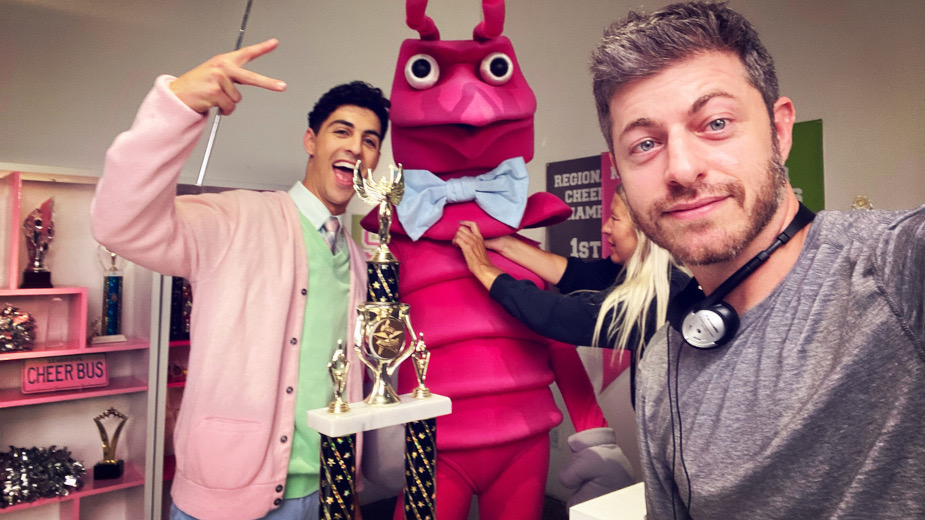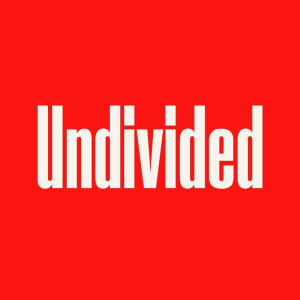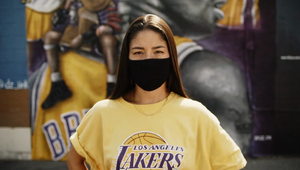
The Directors: Oren Kaplan

A commercial and narrative filmmaker, Oren grew up in Israel and now lives in LA, where he has helmed commercial campaigns for brands including Amazon, Jeep, Ford, Microsoft, Mattel, Pepsi and Quiznos - where he also served as a creative director. His Quiznos campaign videos have won two Telly Awards, an IAC award, and landed on Ad Week’s ‘Top 10 Spots’ list three times. He directed a bunch of episodic shows including the sci-fi comedy series ‘MISS 2059’, for Go90, which was nominated for three Streamy Awards.
Between directing jobs, Oren works as a visual effects artist on films such as Oscar-winners ‘Nomadland’ and ‘20th Century Women’. He loves talking to other directors, and has hosted over 300 episodes of ‘Just Shoot It’, a podcast about the craft and business of being a filmmaker.
Name: Oren Kaplan
Location: Los Angeles
Repped by/in: Undivided Creative, Canada
LBB> What elements of a script sets one apart from the other, and what sort of scripts get you excited to shoot them?
Oren> To me, the number one indicator of a great script is one that doesn’t try to cram too much into the runtime. I find that the most experienced creatives understand that having time for a joke or edit or story beat to land takes screen time. I love a script with a clear setup, unexpected visuals, and a satisfying ending. The scripts that get me super excited usually have well-defined locations, characters, and instantly get me thinking about interesting things we can do with the camera, lighting, sound design, and performances.
LBB> How do you approach creating a treatment for a spot?
Oren> I usually start out by writing down references in my phone. If it’s an action comedy spot, for instance, I’ll start by making a list of movies, actors, camera angles, and stunts that I like. I used to have a list of sections I liked to include, but nowadays I usually just start by describing what I imagine the spot will look like. I’ll do a super, super deep dive into image research. I’ll find gifs, I’ll make diagrams, I’ll dig into the zeitgeist of the concept, or do some experiments to figure out how to achieve what I’m pitching, and then I’ll just describe it. At some point, I’ll start panicking about the deadline and put the words and pictures together, and that’s where I really feel like things come together. Oftentimes I just like an image so much that I’ll figure out a way to have it make sense in my treatment, because ultimately, I think of the treatment as a feeling I’m trying to impart. The writing is secondary. Of course I like to pepper in as many jokes as possible - if it’s a comedic piece - which for me, it usually is.
LBB> If the script is for a brand that you're not familiar with/don’t have a big affinity with, or a market you're new to, how important is it for you to do research and understand that strategic and contextual side of the ad? If it’s important to you, how do you do it?
Oren> It’s very important for me. I’m always very sensitive to the brand language. Sometimes you’ll have a brand, like GEICO that has a very strong voice and tone, but really no rules on how it's portrayed. Other times, you’ll work with brands like Coca-Cola or BMW - that have a very recognisable feel - and for them, I would try to use the brand-building that has come before me as a sandbox to play in.
With brands I have no familiarity with, I always check out their websites, twitter accounts, and all their past marketing. In fact, pulling images of the brand is a big part of my treatment ideation process, even if it’s just to find brand colours and fonts. Of course, if the company is relatively new, I’ll usually ask the creatives what they think of the past marketing, to see if it’s something I should use as a guide, or run as far away from as possible.
LBB> For you, what is the most important working relationship for a director to have with another person in making an ad? And why?
Oren> I’ve evolved on this over the years, but right now I really care about the creative team - which is often run by the creative director. Sometimes the copywriter or art director or even the client seem most connected to the creative concept, and they’re the ones I want to collaborate with. But in general, I love fighting for good creative and understanding what is fuelling the compromises. When I can push back by teaming up with someone from the agency side, I find we end up with the best work.
LBB> What type of work are you most passionate about - is there a particular genre or subject matter or style you are most drawn to?
Oren> I like going big whenever possible, as big locations means reasons to move the camera, lots of extras, celebrity talent, and big lights. However, this shouldn’t be confused with big budgets. I am passionate about building scope and showing off scale in my work. Sometimes that means that we position a cubicle in a way that shows off doorways and windows in the background, instead of a grey wall. And when I can combine scale with comedy and/or visual effects, I’m in my happiest of places.
LBB> What misconception about you or your work do you most often encounter, and why is it wrong?
Oren> I have a lot of bright, saturated, poppy dialogue-driven work on my reel. This is the result of working with a lot of celebrities for very short amounts of time. My dream commercial would look much more cinematic, would have less dialogue, and would use all the elements of filmmaking (sound, light, subtext) to tell the story of the brand. It’s not that I don’t love bright colourful footage. But I’d love to engage the darker side more often.
LBB> Have you ever worked with a cost consultant and if so how have your experiences been?
Oren> Not directly, but I would love to! So often I’m being told that we can’t get a specific piece of equipment but then we’re spending an insane amount of money on things that will never be seen on camera. As a director with an editing and visual effects background, I have a really good idea of what ends up making a difference in the footage and what doesn’t really move the needle.
LBB> What’s the craziest problem you’ve come across in the course of a production – and how did you solve it?
Oren> At the height of covid-19, I shot a campaign where the creative director, who came from print advertising, really wanted one of our leads (a woman in her 50s) to wear white jeans. Unfortunately, our actress didn’t want to. Which, come on… almost nobody looks good in white pants! And you have to trust me when I say that the colour of her pants had zero bearing on the creative. Our wardrobe stylist had 20 other amazing options. It was a huge fight (over Zoom) between the stylist, talent, and creative agency that I wasn’t aware of as I was setting up our first shot of the day. When I was finally clued in to what the delay was, I had to have a heart-to-heart with the creative director and explain to her that this actress was going to be on camera a lot – she was in eight different scenes across the campaign and had to adlib a lot - and that the colour of her pants were much less important than her presence on camera, her confidence in the character, and her ability to feel respected and comfortable on set.
Us folks that are behind the camera can be hungover, have pink eye, not have had a haircut in months, and be nursing a gallon of coffee all day. On the other hand, the people on camera need to be perfect as soon as we yell, ‘Action!’.
Luckily, the creative director was open to changing her perspective after we chatted, and she agreed to not use the white pants. After that, the rest of the shoot was perfect! I was reminded that day that a big part of my job is revealing the ‘why’ behind some of the things that are happening on set, especially when the client and agency are remote. Communication is key… even if it’s just about the colour of a pair of pants!
LBB> How do you strike the balance between being open/collaborative with the agency and brand client, while also protecting the idea?
Oren> I find that usually the agency is pretty into protecting the idea. Instead, my biggest beef tends to be with the legal departments. Oftentimes, we have to change the wording to be less sharp or less clear. Or someone gets scared somewhere and we need to soften the gags. When that happens, I usually fight to get one version of each. If the brand doesn’t understand why the idea is so important, the agency/director reel can still have a version where the idea is protected. When all else fails, I try to find a reference of a successful campaign that has done something similar to what we’re going for, and show why it works. But sometimes, you just need to do what the brand wants you to do. That’s why not every spot shows up on the reel! My mindset though, is to work as hard as possible on each job. I’ve never taken a job that I thought had no chance of making the reel.
LBB> What are your thoughts on opening up the production world to a more diverse pool of talent? Are you open to mentoring and apprenticeships on set?
Oren> I’m all for it. I love mentoring! I’ve hosted a podcast for the last seven years called ‘Just Shoot It’ that is 100% about uncovering the craft and business of being a working director.
LBB> How do you feel the pandemic is going to influence the way you work into the longer term? Have you picked up new habits that you feel will stick around for a long time?
Oren> To be perfectly honest, pre-pandemic filmmaking was more fun. So, I’m hoping we ultimately go back to the way things were.
The only thing I don’t mind is remote casting. It allows me to see more actors and actually get closer to their faces. I also get to see them on camera instead of in-person, which is potentially a better way to see how they’ll look in our commercial. That said, I also love in-person casting! I think when humans are together in the same room, they tend to be more creative.
The other positive thing is that I feel like people aren’t coming to work while super sick anymore. That’s probably a good thing! But overall, I find directing in masks makes it more difficult to connect with the actors - especially child actors. So, I’m looking forward to the day where I can join the actors in not wearing a mask on set.
LBB> Your work is now presented in so many different formats - to what extent do you keep each in mind while you're working (and equally, to what degree is it possible to do so)?
Oren> This has been the issue I’ve been having the most difficult time adapting to. I’ve even said that one of my resolutions for 2023 is to embrace the vertical video. I recently posted a breakdown about how I frame for 16:9 and 9:16 at the same time.
A few weeks ago, I was shooting on anamorphic lenses for an action comedy spot, and the day before the shoot, the client asked for me to make sure it was framed safe for TikTok. It sucks - not sure what else to say about it! But I’m getting pretty good at knowing what shot is going to work vertically and what shot we’ll need to get an extra wide take to make it work. I’ve also been loving shooting in ‘Open Gate’ mode on Alexa and Venice cameras to be able to get all sorts of extra pixels to use for the taller frames needed for social. But who are we kidding, these are all compromises we are making to balance deliverables, framing, and time on set.
LBB> What’s your relationship with new technology and, if at all, how do you incorporate future-facing tech into your work (e.g. virtual production, interactive storytelling, AI/data-driven visuals etc)?
Oren> I love technology. I have a degree in Computer Science and Engineering. That said, they’re all just tools. I’ve used AI for treatments and to try and generate ideas, but it’s not really been great so far. I started out making an interactive series for Disney, and have a certain dislike for it that runs quite deep. But, I use all the tools. I 3D scan locations using my phone and Polycam. I load up the sets into Blender and try out different camera angles. I design sets on my computer. I do my own visual effects when I can… or at least previz them. I secretly shoot coverage on my iPhone when I’m on set. A few times, some of my shots have made it into broadcast TV spots.
But, I never want to be spending more time and resources on technology than what we can achieve practically. I’d much rather shoot in a desert or a forest or on a plane than shoot on a virtual stage. If I just wanted to be surrounded by computers all day, I would’ve never left engineering for film.
LBB> Which pieces of work do you feel really show off what you do best – and why?
Oren> I love my Converse spot with Pete Davidson. It’s shot using all practical effects and they just crack me up. My wife is the actress in it, and I think she’s so f’in funny… although I might be biased.
I also like these two spots I wrote, directed, edited, and did the VFX on for Twitch. They were co-branded with 5 Gum and with Amazon Luna, but they were really low budget and I just got to do everything myself.
Finally, I’ve done a lot of tourism work, and my favourite of those spots is the work I did for St. Augustine. The concept is pretty fun and my pitch was just to push for an overconfident guy seamlessly walking us from location to location in St. Augustine, trying to come off as a fancy European or something. For you Canadians, St. Augustine is a small tourist town in Florida. We filmed at six vastly different locations over the course of two very rainy days, and somehow still pulled it off.













